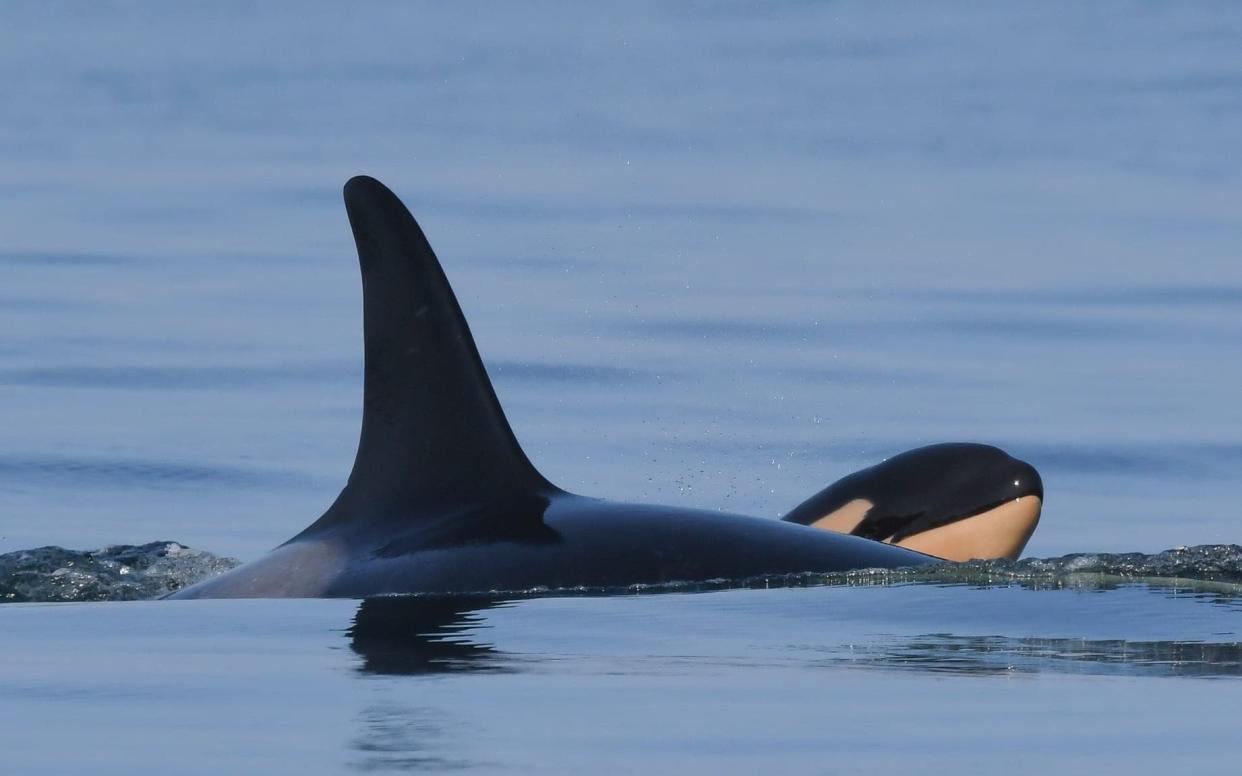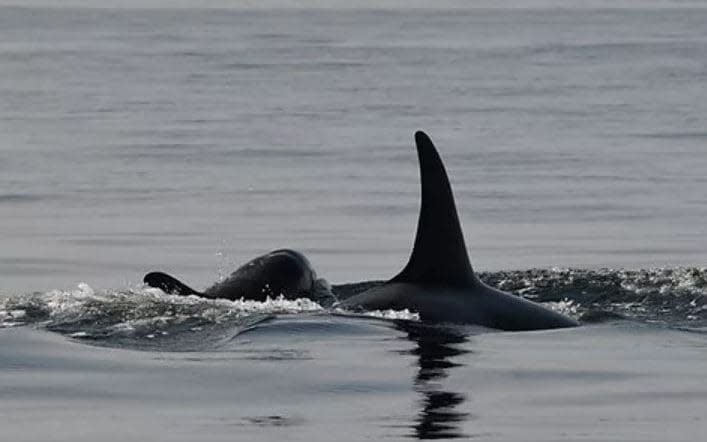Killer whale that mourned and carried calf for 17 days becomes a mother again

A killer whale who spent a record 17 days carrying her dead calf while in mourning has become a mother once again.
The endangered whale, known as Tahlequah, was spotted with her new calf in the eastern Strait of Juan de Fuca in American waters, the Centre for Whale Research in Washington said.
On its website, the Centre said: "Hooray! Her new calf appeared healthy and precocious, swimming vigorously alongside its mother in its second day of free-swimming life."
Also known as J35 among scientific researchers, Tahlequah made international headlines in 2018 after she was documented carrying her dead calf for 17 days over 1,000 miles on a 'tour of grief'. She was also seen diving down deep to retrieve the corpse when it sank.
The practice has occasionally been documented among the Southern Resident whales, who inhabit the waters off British Columbia and the American state of Washington, but J35’s lengthy period of mourning attracted global media attention.
The population of Southern Resident whales is listed as endangered, and has declined from 88 in 2005 to just 73 today.

“It’s a bit of a nail-biter right now,” Dr. Deborah Giles, a whale researcher at the University of Washington’s Center for Conservation Biology, told the New York Times.
“I can’t help but be thrilled that she had this baby and this baby didn’t die right away. Everybody is worried and on pins and needles, wondering if this calf is going to make it.”
The orcas have faced a series of challenges and problems with their habitat over the past two decades. A shortage in prey, noise pollution from ships and toxic pollutants in the food chain have all contributed to difficulties in increasing the population size.
Many pregnancies fail and approximately 40 per cent of calves die within their first year of life.
Tahlequah fell pregnant with her new calf, christened J57 by researchers, in February last year. The gestation period for orcas typically lasts between 15-18 months.
Researchers say the calf was likely born last Friday, after being first spotted on Sunday with an upright dorsal fin. It typically takes a day or two for baby whales to straighten their dorsal fins as they become bent in the womb.


